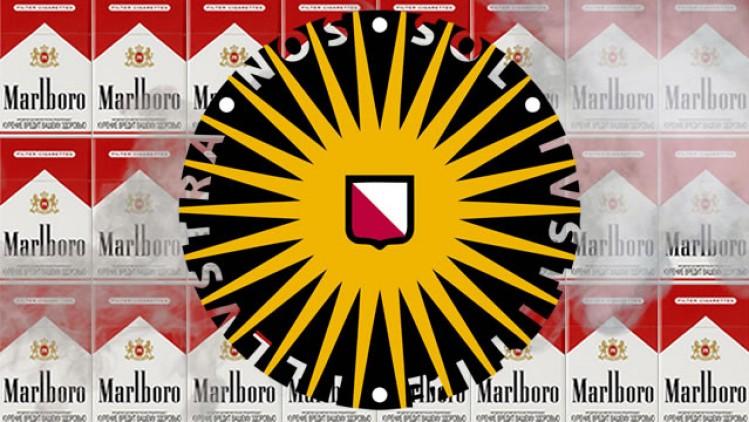Utrecht University cuts ties with Philip Morris after all

Early January, the UU received a letter from the Dutch Association for Oncologists, in which they urge the university not to have research funded by the tobacco industry. The university had received a 360.000 euro grant for a two-year period of a research study by Law scientist John Vervaele about preventing and countering tobacco smuggling.
In response, the university promised to never let any future research be linked to the tobacco industry, but not to reject the already promised grant from the PMI Impact fund. The university stated there was sufficient guarantee that the research would be transparent, and that the fund is independent from Philip Morris.
The KWF cancer foundation, which provides the university with millions in research funds each year, accepted the UU’s promise that they would never do business with any organizations linked to the tobacco industry anymore.
The Dutch Association of Oncologists and the anti-tobacco organization TabakNee voiced their disappointment in the UU’s response, while pressuring the KWF, which states in their own guidelines they will never subsidize any organizations that are linked to the tobacco industry in any way.
For the UU, this lobbying was reason enough to rethink their earlier decision. “Judging by the public debate and the explicit requests from our treasured partners, we’ve decided to eliminate this particular financing construction,” says Anton Pijpers, the Executive Board’s chairman.
That doesn’t mean the research is cancelled, however. Pijpers: “Combatting tobacco smuggling is important. That was the reason why, after some serious discussions, we initially agreed to have the grant proposal submitted to PMI Impact; the scientific independence was guaranteed.” The university will now fund Vervaele’s research themselves.
KWF is glad to hear about the university’s decision. The KWF’s interim director, Sigrid Attema, says: “This is a wise choice. The tobacco industry is not a regular industry, and it’s undesirable to have that industry fund scientific research.”
Frits van Dam, spokesperson for the TabakNee organization, calls the decision a happy surprise. “The tobacco industry always has ulterior motives in funding this kind of research, for instance to have tobacco excise lowered. It’s a good thing to have let go of this alliance. I hope the researchers will expand their search for experts on this topic.”
Next month John Vervaele, together with an interdisciplinary and international team of lawyers and criminologists, will start to study how counteracting illegal tobacco trade within the UU can be improved. The main research questions are how national authorities combat illegal tobacco trade, how the EU can improve the counteraction by introducing new policies, and how the EU can influence the behavior of other countries and private parties outside the EU. To answer these questions, the research team will make a comparison of the policies of several EU member states, will compare the measures taken by the United States and the EU, and will compare separate policy areas. The research results will be spread far and wide.
Vervaele: “We’re doing this study because of the public interest it serves, in terms of public health and benefits to governments. It was, and remains, crucial to have the research fully independent, and to have the results available to the public. That is the case. Important recipients of the results are: European and national policy makers, border authorities, police, the Public Prosecutor’s office, and the judicial powers.”